|
In which the writer mulls over whether her forays into the world of Mixed Martial Arts were wise or regressive, while also describing a short-lived stint producing 'brutal' erotica. Today’s notes on the view from my window: Autumn’s arrival is evident. Leaves have turned red and are crispy and detachable. It’s been a long time since I’ve seen Europe like this, and it’s very pleasant. This week I wanted to complete what I have so far found myself unable to: a piece about fighting. Every time I plan to, I struggle. I have so many unfinished pieces about this topic, all of which I develop a distaste for as I am halfway through them. There just feels like there is so much unfinished business. It’s been almost six months since I’ve even touched a punch bag. All that remains as a reminder of something that took up so much time and energy and space in my life is a mouth guard and a t-shirt from the fight school I’d joined here in Berlin that you had to wear it during practice. I’ve misplaced my wraps. I never had my own gloves. In Hong Kong we borrowed, and the smell of what I sometimes call “sketchy-man-sweat” was part of the deeply visceral, daily experience. Here in Berlin, I’d planned to buy a pair but couldn’t yet justify the expense, so I trained with bare fists. When lockdown struck, honestly, what I felt about not being able to go to my MMA gym here, was relief. My enthusiasm for the sport, which began properly (with various stops and starts) in 2018, I think, has waxed and waned dramatically through that time, and has always been driven by my emotional state. During times in which the need to train has felt less pressing, I’ve dragged myself to the mat, telling myself that it would be a waste to have to have given so much time and heart to it whenever whatever fire it was that got me there in the first place was somehow no longer burning. Honestly, there was a point, last year, when I was so wrapped up in it all, so inspired and empowered by it all, when this crazy, wild world felt like everything I wanted that my world of books and words, writing and cold analysis, and this sense of never being enough -- could never give me, I was contemplating how I could make this a full time thing, how I could make this my life. Few things (or people) have struck me with that level of passion. And when they do, they are usually not all that healthy. I’m very interested in the idea of neuroplasticity. That is, that the mind is malleable and that it is what we do on a daily basis that shapes us, and that we actually have considerable power over who we are, and that there is a lot of scope to create adaptations around the aspects of ourselves that do need work. That this is a daily thing to work on in increments and with a gentleness that allows us to make space for our many flaws and foibles. To this end, I have two rather conflicting and irreconcilable takes on my brief, burning love affair with combat sports: On the one hand, it taught me so much, and it unearthed a courage in me that lived somewhere deep and felt forgotten. I remember the first time I was put in sparring scenario, around two weeks after I first took up classes. And it was so strange. Faced with an opponent, and given a simple sequence to riff off, well. It’s hard to describe. But in that moment, someone else showed up. Someone who knew what they were doing and who was completely unafraid and unapologetic. Completely oblivious to pain. It was bizarre. Coaches pulled out cameras and filmed the episode, in which I’d faced off against a much more experienced, male opponent. I think everyone was a bit surprised by this little demon that had shown up in my place. After our third and final bout – during which I’d been operating from a much more defensive position owing to fatigue starting to set in (my pacing skills that help prevent me from “gassing out” have much improved since then) I excused myself to the changing rooms, pulled my gloves off my fingers and sat panting and staring at the walls, soaking up – I don’t know what feeling that was, but it was incredible. I was hooked. God there is so much more to write here. What I will say is that of course it is brilliant that more and more women are tapping into the darker and scarier forces within them that can protect them. There’s so much to say on this subject. On the untapped potential of a woman broken free from societal restraints. On Woman finding the strength and power she always had but felt forced to conceal. But the story is never that simple, is it? This summer, I enjoyed a sort of professional freedom that allowed me to try all sorts of work. I found a talent for selling furniture on Ebay on behalf of a client, and, in another strange gig I found advertised on Craigslist that I thought might be fun and allow me to experiment more with fiction, I briefly picked up a client in the murky and kind of hilarious world of erotica and role play writing (So Berlin). My first (and only) assignment? Two young women facing off against each other (with weird geopolitical overtones throughout), in a bitter tussle during which layers of clothing are conveniently dispensed with, that ends in a rather brutal and public humiliation. My client, whose real name of course I never learned and who adopted a highly effusive-to-the-point-of ‘it-feels-like-I’m-being-groomed’ tone towards me and my work, gave me extremely particular briefs, emphasising that the more brutal I go, the easier it would be to get more assignments.
I laughed it off, wrote what I think is actually a pretty good piece that’s quite slapstick in places, undergirded by an understanding of the psychology involved in women fighting alongside an awareness of what bodies actually do during a fight, interspersed by the bits I was told had to be there, like cup sizes and mentions of jiggling butt cheeks. (Jiggling butt cheeks? Really? People pay for this stuff?) Anyway, my completed work was accepted and approved of by the appropriate parties (honestly, I have no idea who these people were, except that they were couples bored enough of each other to have to outsource erotic inspiration). My client told me I was enjoying a “buzz,” with the caveat that my next oeuvre should focus less on plot and character development and more on spanking and gagging. Where am I going with this? My dealings with this client ended soon after the initial assignment. I had been offered a new, better paid job from him that would involve virtually slinging insults at another writer, something which I briefly considered doing mostly because my trash-talking skills are already sort of legendary, but which just felt so sad and dodgy. Being part of this industry pitting women against each other to turn strangers on. I’ve now done something quite dastardly. I’ve drawn some connections of my experiences with the world of fighting with a brief and bizarre attempt at writing porn. Obviously the two things are not the same. But let’s return to the subject of neuroplasticity. Is teaching women to fight. To fight each other, especially, really a value worth getting behind? Or is it regressive? Was the fire that began to burn through me in those months of kicking and punching and wrestling and choking one I ought to keep alight or one I might rather wish to blow out for good? Can that even be done? I don’t know. These things are never that simple. I know part of me misses the mats. The camaraderie. The rituals. The completely novel ways of moving and being in the body and relating to another person’s body – as to their mind. How you start seeing something in people that you normally never would. That honesty, that extremely bizarre intimacy. How fascinating and creative and unpredictable it all is. This feeling of being part of something thoroughly new each time you do it. MMA is such a complex and fluctuating beast, so beautiful in its brutality, so clever and artistic in the way so many physiological languages are woven together. It’s such unique way to experience game theories in action, to learn to study the particular corporeal algorithms we all have that speak to so many untold stories embedded deep within each and every one of us. There’s nothing else like it. Read more on Sarah's Mixed Martials Arts journey via the links below: 1. Fight Club 2. Lessons from the mat 3. Good and bad algorithms 4. Taming the lizard brain Read her summary of why she fights, and what cultural value MMA brings in her BIO.
1 Comment
In which the writer describes a wander into her childhood neighbourhood, and muses on the pressures of the modern newsroom, where informational downloads make navigating nebulous spaces -and a sense of living something more than a hypercerebral, hyperfrazzled existence- a challenge. I am breaking with blog tradition and writing at night time. It’s a beautiful evening, finally a bit of rain, the sky has a blueness to it that’s ocean-like, the buildings a hulking blackness broken up by sporadic glowing yellow squares. Streetlights shining against the shadows of leaves refract against my window’s glean; makes the glass look a little bit like it’s peppered with stars from a children’s book. Last week I found myself in my old neighbourhood from childhood, in sleepy Dahlem, broke my rule of not disappearing on companions to see if I could find my way back to my childhood home without checking Google Maps. I overestimated the walk by about an hour and half but found my way in the blistering heat to Bruemmer Strasse 26. Broke into the shared garden to explore. There were weird gnome-like statue things that weren’t there before, but otherwise, it seems like very little has changed at all. The old currywurst stand down the road is still there, even. It was strange being back there, but, after months of spending more time in a state of lost as opposed to found, it was kind of nice to know that something inside me was able to find my way. And, after all these years, the same McDonalds lives in the same place. Almost as if no time has elapsed at all. I’m not sure if the newsagent’s is still there, the one where our family had a standing order of around five newspapers a day; papers which still exist today - none of which have yet folded, which is nice to know. Sometimes, when I’m being good and productive, I’ll buy a weekend edition of one, bring it home, leave it sprawled out on the kitchen table, marking my territory. It’ll rest there for an hour or so until my housemate folds it up and tidies it away, returning our shared space to its barren order. Sometimes, there will be flowers in its place. From my understanding, newspaper mess does not count as mess; it makes somewhere home. Same as how the three beeps that precede BBC’s radio service aren’t so much noise as a daily reminder to be quiet, and to listen to the world. These days, though, my morning rituals are kind of different to how they were some years ago, and what I grew up with. This sounds silly and/or Daoist, but if I’m honest, I like my mind empty in these hours. I don’t want to be thinking about everything big and grand happening everywhere else. I want to be here. In my own skin, in my own body, thinking about simple and unexceptional things like breakfast and whether it’ll rain later and what kind of rain that’ll be. If I was plying my trade in the traditional sense, finding my way daily to the hellishly fantastic quagmire of modern day newsroom, where everyone is at the verge of a nervous breakdown and the coffee tastes like electric mud, I’d be forced to download large swathes of data, ideally generating out of all that increasingly incoherent informational noise a pitch or two up my sleeve, ready to rebuff whatever wisecracking-journo-bro correction is fired my way when I’ve been stupid enough to make a comment vague enough to be misconceived and misrepresented by someone desperate to appear the cleverest in the room. The other week, a journalist friend corrected me on a subject that was supposedly my area of expertise, not hers. She was so forceful and convinced about it that I conceded to her position. It was only going home, to look up stories I have in the past edited, that I was able to confirm to myself that I had actually been right.
I think many journalists like to feel and seem like they know everything. I find trying to uphold this deceit boring and exhausting. Of course, we don’t know everything. How can we? Most of us just know bits and bobs about the world that come under the, rather restrictive, (and-in-constant-need-of-reassessment), banner of newsworthy, or, like me, have a peculiar and insatiable appetite for burrowing into underexplored landscapes of knowledge and experience, such that we come out the other side having woven all sorts of strange informational threads into something pretty, interesting and informative enough to warrant being shared with a stranger. I’ve been recently reading some texts on some distinctions between fiction and non-fiction writing. In one article I came across, a novelist brings up a term coined by Keats, called “Negative Capability,” which describes a style and form of writing that does the opposite of inform. Rather, it prompts the reader to make space for, and manage discomforts around uncertainty and nuance, leading them into a state of confusion that has its own sort of charm to it which you wade through in a half light, anchoring yourself to what can hold onto while inevitably submitting yourself to the strangeness of it all. These informational downloads that I used to put myself through, which I now don’t have the stomach or the will for, or maybe what’s lacking is the drive. I’m no longer trying to keep up with peers who can sort of confidently chew down on huge chunks of knowledge and whittle them down into news segments, shouting them into the Twitter ether like a closed-circuit tribe of baboons. It felt like trying to be that person was giving away too much, like barrelling towards a certainty in ideas I don’t think I could ever have. And like being all head, and nothing aside from that. Sometimes, when I lie in bed I can hear the screeches of the S-Bahn, and it sounds like there are banshees living there among the tracks. *For the sake of accuracy, I'd like to note that the anecdote from buying newspapers and keeping them in the kitchen is a little bit out of sync with the rest of the blog, as it took place in a different flat to the one in which I now live. This is something I wrote this week to mark the passing of my grandmother, which happened earlier this year, during the height of the pandemic. We were surprised by the event, especially as 88 is quite young for a Sponaas. (Actually, more accurately, a Falkflaug, which was her maiden name, and literally means falcon wing). But she had had a long and good life.
I have many fond memories of my Mormor, but one which I’ll always return to in my mind is of how much joy she took in sitting in her kitchen, binoculars in hand, watching the Hurtigruten ferry pass through the fjord stretching out beyond her window. I’ll remember that, just as I’ll remember the way she’d put a spread together every morning for breakfast. Selections of jam, ham, salami, cheese, bread, maybe some yoghurt. Watered-down coffee. Always more than we could stomach, always nice and thoughtfully arranged. And then, there’d be a tin of sugary biscuits she’d have made before we arrived that we’d always get through far too quickly. She was happy to make a second batch. And a third, and a fourth… She taught me to scramble my eggs properly, store leftovers in the fridge, for the next day. You know, it tastes much nicer cold, piled on to a slice or two of salami, bread smeared with quite a bit of butter. Norwegian dairy products. Definitely something to miss when you’re away. Tine Melk. She’d make sure she’d have it in pink, red, as well as her strange green variety, when we came to stay. Trips to the library. I’d get through so many books in those long and lazy Norwegian summers with her. She allowed us all sorts of little indulgences. Hot dogs for dinner, frozen pizza, microwave popcorn dripping in smør, horror films from the local Blockbuster. Back to back Steve Urwin programming on Animal Planet. Bedtimes as we pleased. Friends and cousins round, fun, trips to the chilly sea, matpakke, Mormor stretched out on a deck chair, eyes closed, facing the sun. Thomas and I would catch crabs and pit them against one another in little races we’d hold for them on the sand. Sometimes we’d pull little pretty bits of stone off the large rocks we’d clamber onto, pretending we were characters in our favourite video games, our handful of tiny, pretty purple stones our currency, the ground a quicksand we couldn’t dare step into. When you’re that age, everything is magic. I’ll remember her lovely singing voice, too, lilting and soft, and the lullabies she’d sing me to sleep with before I graduated to my own bedroom downstairs, where the sunlight poured in between curtains in a way that felt very gentle. I’ll also remember trying and failing to sleep up in Edith’s old home Bodø, curtains drawn to block out the midnight sun. The sound of crashing waves. I’ll remember exploring boxes stored in the attic, decades and decades of stuff packed away. I could spend hours up there. Pulling out tiny wooden toys, record album collections, sixties dresses. The bounty seemed endless, so too the possible flights of the imagination they’d spark. I think she knew how much I liked it up there. Would often pull down the stepladder just to indulge my wish to be let loose in that funny little dusty world, alone with all the strange eyeless dolls and delicate trinkets. I’ve been reading through a piece of writing my mother has sent me, a speech from my Edith’s (Mormor’s sister) funeral, that describes their childhood up in Sandmoen. The process has involved looking up a whole bunch of new words, some of which I don’t even know in English. Sjyvotta. Large mittens worn at sea, with possibly an extra pair tucked inside. The men would go out and fish, the women waiting at home to disgorge the hurl. Simpler times, Difficult times. It’s probably something people say a lot. But life must have been so very different back then, up at the edge the Arctic Circle, next to one of the world’s wildest whirlpools. Still, it sounds like whatever changes Haldis lived through, she learnt to take them all in her stride. As her grandchildren, we’ll remember her as very strong in some places, and very soft in others. She had many friends, one of them being my great-aunt Ersika, to whom and from whom she’d send and receive postcards, both parties having to wait for visitors to translate the fond messages they’d send to one another. Two strong, energetic and generous women. Of course they’d find an affinity with each other that transcended linguistic and cultural barriers. Like me, she was curious, and took pleasure in exploring new worlds. She gave me a lovely Chinese jewellery box that played a nice tune when she opened it up and told me stories from her time visiting Beijing. Talked about how many bicycles there were. A very different Beijing to the one I lived in, of course. So many things have changed since Haldis’ childhood days in sleepy Sandmoen. But I’m not sure they changed Haldis all that much. One of the last conversations we had she asked me if I had a job, and if they were paying me. I said yes. She asked me if they were paying me much. “Not really, no,” I replied. “Well, that’s good,” she said. “Too little money is not good. But too much money is also not good,” she said. There are many things I’ll remember about my Mormor. The ring around her finger with Per’s name on it that she kept and wore every day. The 30-year-old bottle of Scotch he left behind that we tried out during my last visit, so strong and intense to taste as to be almost undrinkable; her face during her effort to sip it. The albums upon albums of family photos she’d assembled, showing the hytta in its various stages of development through the years. One with Per’s head poking through the ute du. Others of various relatives sprawled out among the fir trees, soaking up the sun in summer dresses and bikinis from a variety of decades. I’ll remember Mormor when my university friends came to stay. That week, she became everyone’s Mormor. I’ll remember Mormor trying to say “hedgehog,” and struggling at the point where d meets g. Mormor pretending for years not to speak any English so that we’d have to learn Norwegian. The old-fashioned Norwegian words I picked up from her that I still say. I’ll remember her sweet tooth, her stubborn love of the creamiest of cakes. I’ll remember her face, how it was somehow always luminescent, even as the years progressed and her wrinkles deepened. Her eyes that were always steady and bright. The smell of lutefisk wafting through the kitchen doors sometimes. The Fsssh sound she’d make when someone said something a bit rude or naughty. The way she’d whisper; ‘Gud Natt, lille venn,’ before you fell asleep. She’ll be missed, but never forgotten. |
Sarah KaracsA Berlin-based writer engages in the study of belonging and in-between places after years spent faraway from 'home'. Archives
August 2023
Categories
All
|
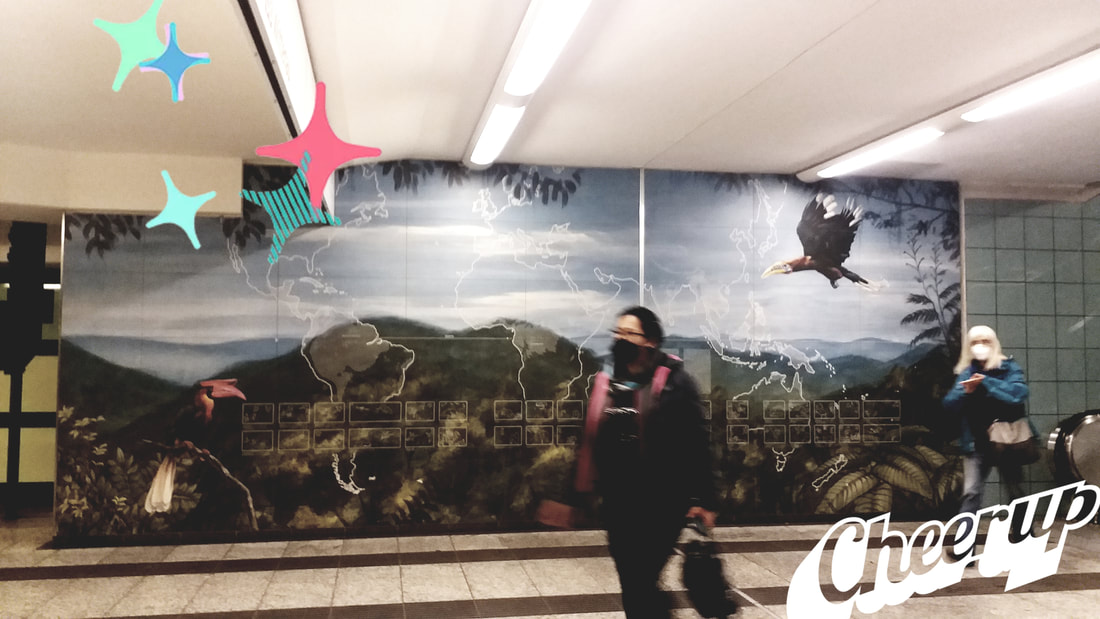
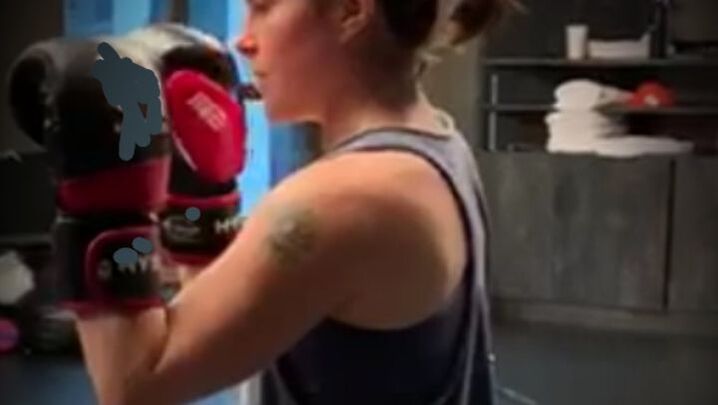

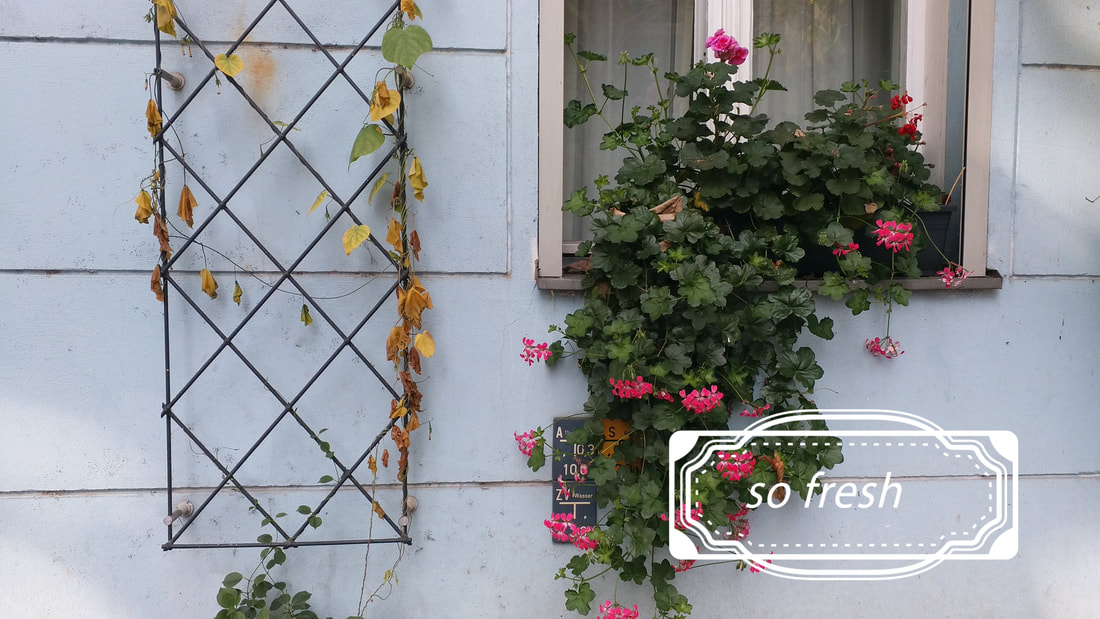
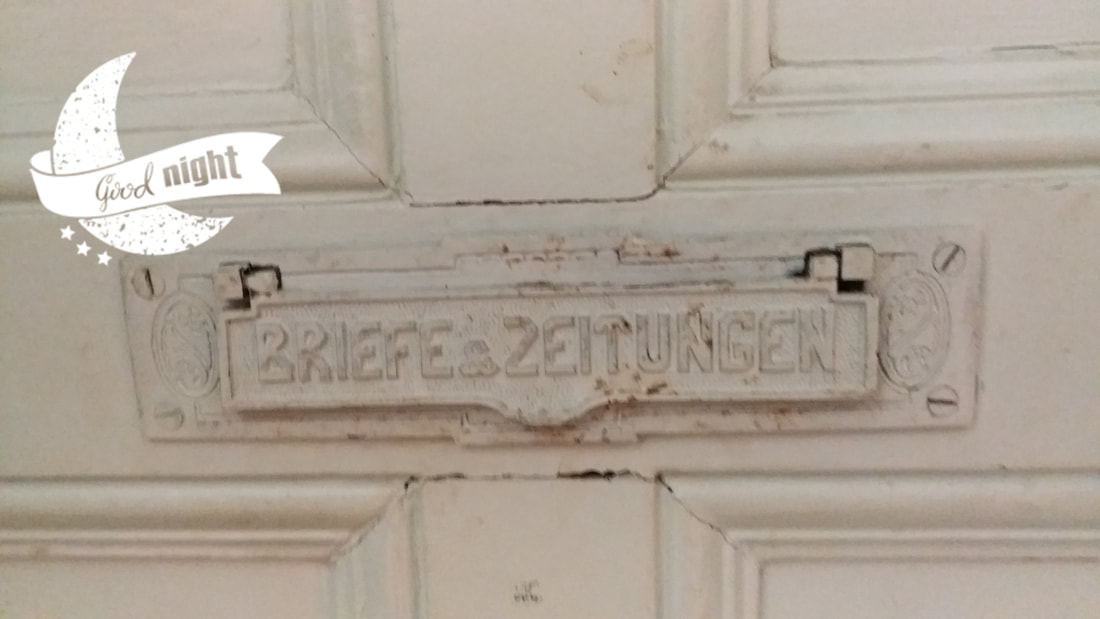
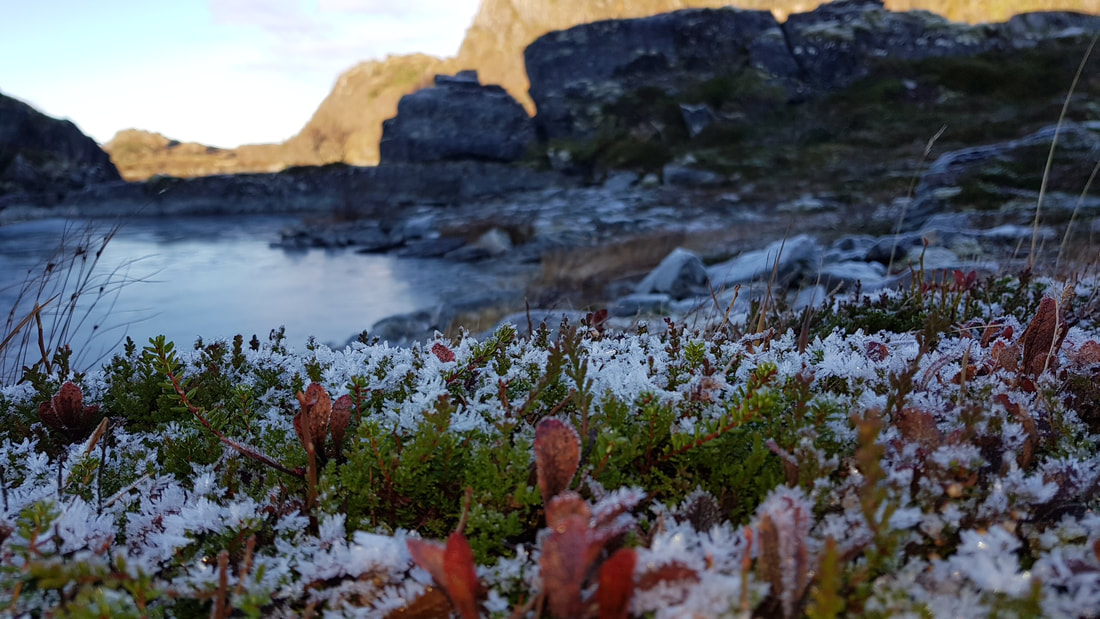
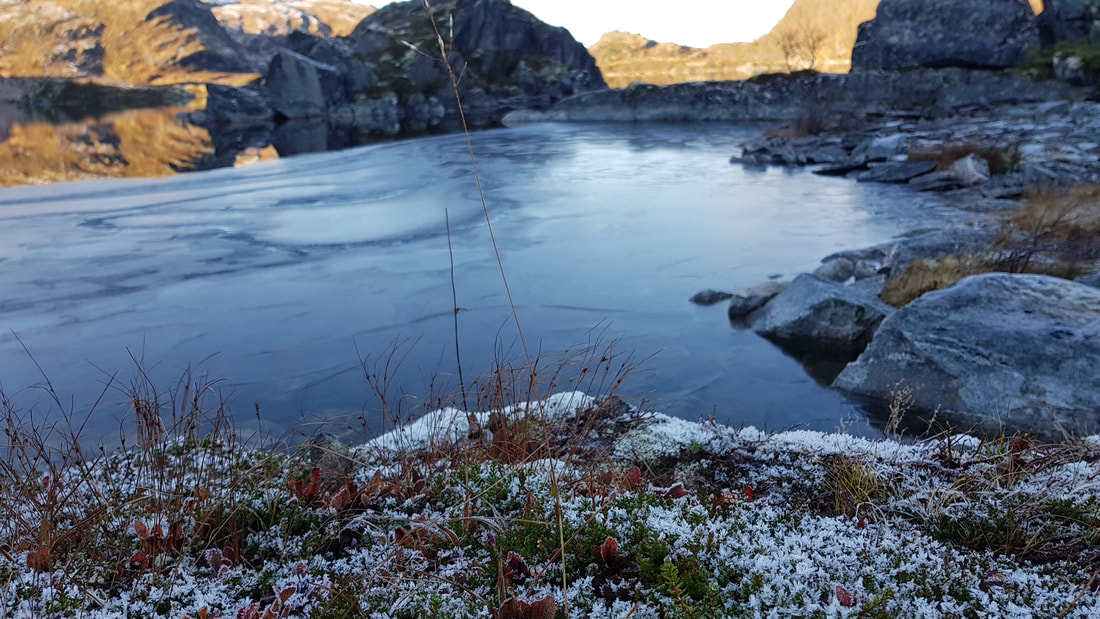
 RSS Feed
RSS Feed